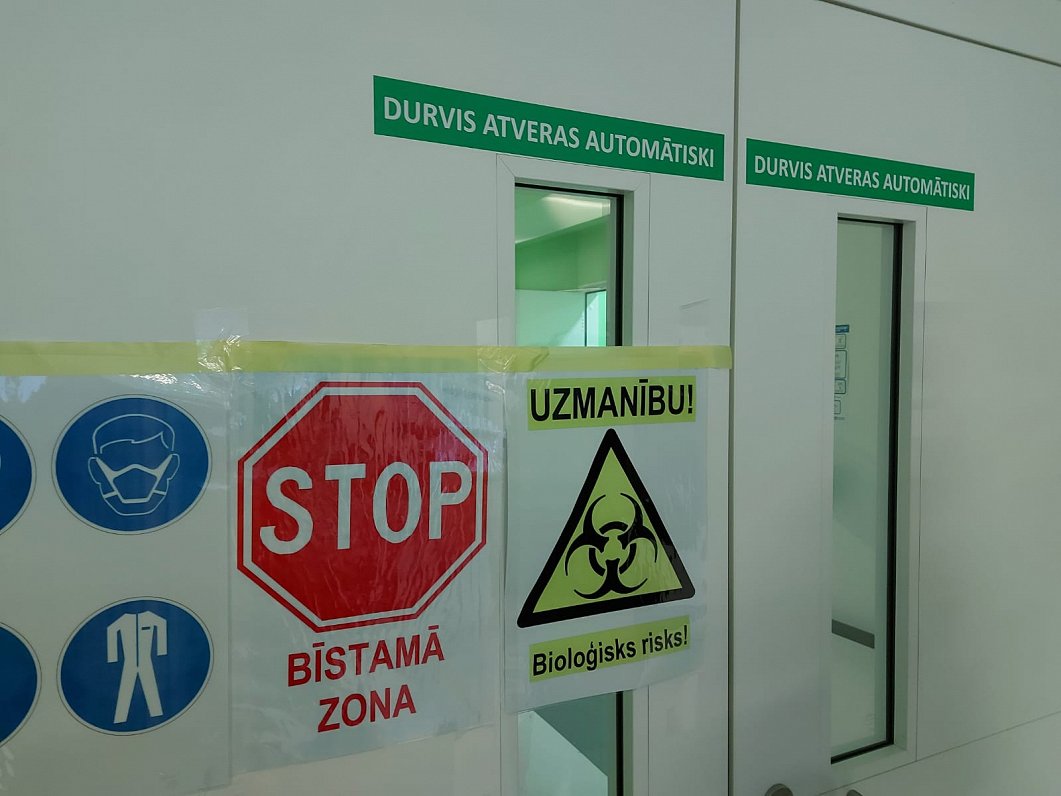Following the meeting of the Crisis Management Council, Prime Minister Krišjānis Kariņš (New Unity) said at a press briefing that the state of emergency will be announced by the government on Friday with a view to increasing the Covid-19 vaccination coverage much more rapidly. The fight with Covid-19 will not be over until the vaccination coverage reaches 90% in risk groups, including among seniors, and 70-75% in the whole society, said Kariņš.
"The influx of Covid-19 patients is growing rapidly in our hospitals. Unfortunately, this also limits the ability of our hospitals to fully provide all services to all patients," the prime minister said.
He mentioned that Latvia has been fighting Covid-19 for a year and a half, but this fight will not end until the coverage of vaccination among risk groups, including seniors, is above 90 percent, and in society as a whole - between 70 and 75 percent. "We still have a long way to go. It looks quite far away," the Prime Minister noted.
More stringent restrictions are planned on unvaccinated persons.
Shops and services
Stores are expected to be available only to residents with Covid-19 vaccination and recovery certificates. The exception will be grocery stores and other basic needs-carrying stores, like pharmacies and pet stores. Shop working time will be limited.
It is also intended to provide that people with a Covid-19 certificate may continue to provide and receive services on-site, ensuring compliance with epidemiological safety requirements.
In public catering, it is planned to maintain the possibility for people with a certificate of vaccination or recovery to eat in with a time limit. Food will be distributed for takeaway to both vaccinated and unvaccinated people.
Work
It has also been agreed that the entire public sector - public and local government authorities - will be obliged to vaccinate against Covid-19 and there will be wider requirements for vaccination in the private sector.
There is also a requirement to work remotely, with the exception of jobs where this is not possible. This will also apply to the State administration, and the Cabinet will continue to work remotely.
A statement from the State Chancery to the media said that those who have to work on-site will need a certificate of recovery or vaccination, or in some cases a negative Covid-19 test will have to be presented. On-site and remote workers will be identified by the employer.
Schools and activities
Schools will continue to work in person, but all children will have to wear face masks. Schools plan testing weekly. It is planned to limit extra-curricular activities.
In all spaces where events can be organized for persons with Covid-19 certificates, the number of people will be reduced. Also in cultural events in the “green mode”, visitors will have to wear masks and there will be a limit to the number of visitors – up to 60% of capacity.
Minister of Culture Nauris Puntulis (National Alliance) acknowledged the need to “turn on support mechanisms” in this situation.
Detailed decisions expected Friday
Covid-19 restrictions to control are planned on a larger scale, involving different monitoring authorities.
The government will consider incentive measures whether to encourage vaccination against Covid-19. The government still needs to take a decision on the announcement of an emergency and the imposition of restrictions.
“Those tough times affect all of us. We must not lie to ourselves that they will come to an immediate end,” Prime Minister Kariņš said, repeatedly calling on the population to get vaccinated against Covid-19.
Health Minister Daniels Pavluts also pointed to the importance of vaccination:
“Unfortunately, half of Latvia's population has taken advantage of this [vaccination against Covid-19] option, and the other half – no. [..] If there were not so many unvaccinated people in Latvia, we would not have to take this step because these are unvaccinated people who are severely ill and filling Latvian hospitals, and it is causing overload in Latvia's healthcare system.”
The crisis management board was meeting behind closed doors from 15:00 to nearly 1 at night. The long discussions are likely to signal that it is difficult for politicians to agree on limits this time. The decision-making was already postponed once, from Tuesday to Thursday.





























